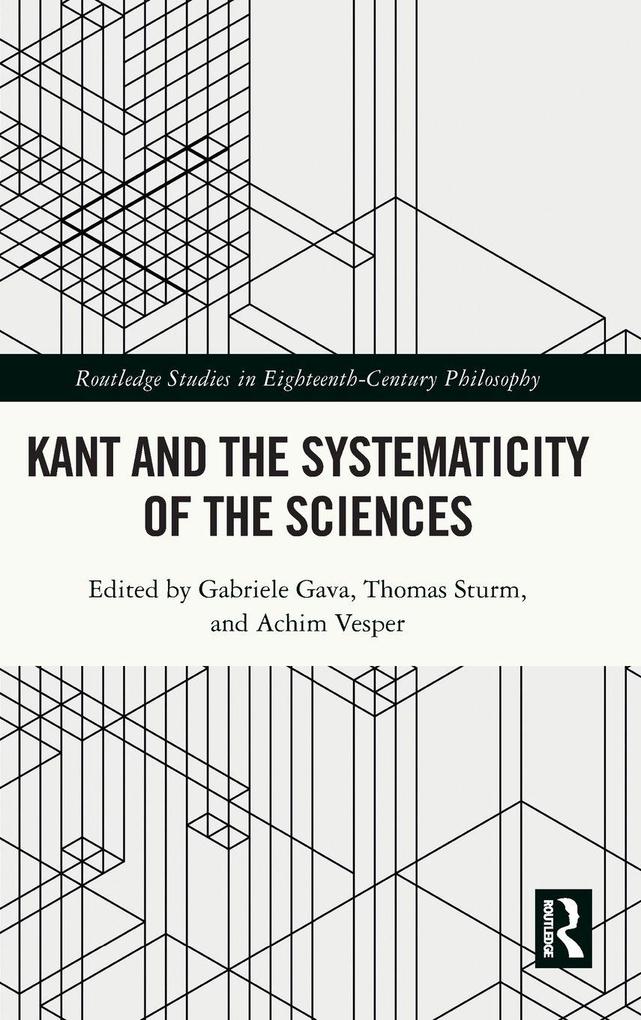
Zustellung: Mi, 27.08. - Sa, 30.08.
Versand in 7 Tagen
VersandkostenfreiBestellen & in Filiale abholen:
This book provides the first comprehensive discussion regarding the role that Kant ascribes to systematicity in the sciences. It considers not only what Kant has to say on systematicity in general, but also how the systematicity requirement for science is specified in different fields of knowledge.
Inhaltsverzeichnis
Introduction: The Significance of Kant's Account of Scientific Systematicity Gabriele Gava, Thomas Sturm, and Achim Vesper Part 1: Systematicity: Historical Backgrounds 1. Kant and Crusius on the Hierarchy of Human Ends Gabriele Gava 2. Lambert's System of the Sciences Henny Blomme Part 2: The Systematicity of Special Sciences 3. Kant's Early Cosmology, Systematicity, and Changes in the Standpoint of the Observer Fabian Burt and Thomas Sturm 4. Kant and the Idea of a System of Logic Clinton Tolley 5. Systematic Unity and Construction in the Theory of Conic Sections Katherine Dunlop 6. Kant's Conception of the Metaphysical Foundations of Natural Science: Subject Matter, Method, and Aim Thomas Sturm 7. Systematicity, the Life Sciences, and the Possibility of Laws Concerning Life Hein van den Berg 8. Kant's Aethereal Hammer: When Everything Looks Like a Nail Michael Bennett McNulty 9. Systematicity and the Definition of a Science: Physics in Kant's Opus postumum Stephen Howard 10. Systematicity in Kant's Philosophy of History Andree Hahmann 11. Systematicity with a Worldly Orientation? On Kant's Theory and Practice of Gazing with an "Eye of Philosophy" Huaping Lu-Adler Part 3: The Systematicity of Philosophy 12. The Systematicity of Natural Science: Logical and Real Eric Watkins 13. What is a System of Moral Philosophy For? Systematicity in Kant's Ethics Stefano Bacin 14. Kant's System of Systems Paul Guyer
Produktdetails
Erscheinungsdatum
29. April 2025
Sprache
englisch
Untertitel
Sprache: Englisch.
Seitenanzahl
356
Herausgegeben von
Achim Vesper, Gabriele Gava, Thomas Sturm
Verlag/Hersteller
Produktart
gebunden
Gewicht
666 g
Größe (L/B/H)
235/157/24 mm
ISBN
9780367756888
Entdecken Sie mehr
Bewertungen
0 Bewertungen
Es wurden noch keine Bewertungen abgegeben. Schreiben Sie die erste Bewertung zu "Kant and the Systematicity of the Sciences" und helfen Sie damit anderen bei der Kaufentscheidung.











